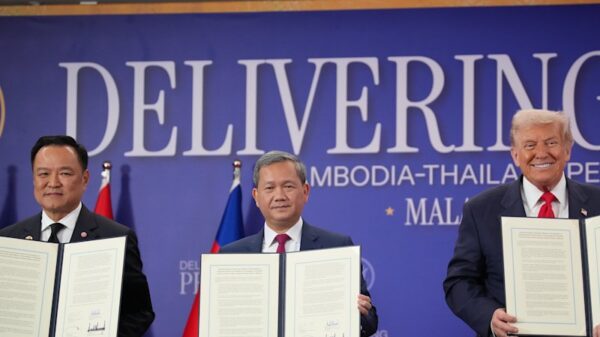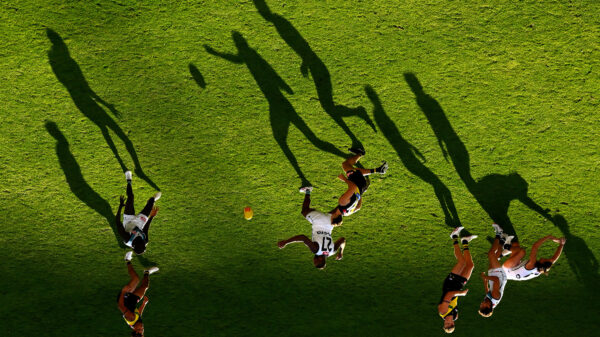The upcoming summit in Alaska between US President Donald Trump and Russian President Vladimir Putin has prompted a flurry of diplomatic activity in Europe. Scheduled for August 15, 2023, this meeting marks the first high-level US-Russia engagement in over four years, leaving European leaders anxious about their role and influence in discussions that could significantly affect the continent’s geopolitical landscape.
In the wake of the summit announcement, European Union officials and various national leaders have intensified efforts to ensure that the United States does not “fall into a trap” regarding its engagement with Russia. They are simultaneously working to offer unwavering diplomatic support to Ukraine and are preparing additional sanctions against Moscow. Despite these initiatives, the EU is grappling with a lack of new diplomatic strategies, which has left them feeling sidelined as crucial decisions loom.
European leaders expressed their concerns during a videoconference on August 11, where they discussed potential strategies to influence the outcome of the summit. Following this, several leaders, including Ukrainian President Volodymyr Zelenskyy, participated in a call with Trump on August 13. Reports indicate that communications from Washington have been inconsistent, with various factions within the US administration presenting differing agendas for the summit.
While European officials have conveyed a sense of cautious optimism following their outreach to the US, uncertainty remains about the summit’s outcomes. According to sources familiar with the situation, European leaders have established clear red lines, insisting on a cease-fire as a prerequisite for any discussions regarding potential Ukrainian concessions. Additionally, they demand security guarantees for Kyiv and mechanisms to monitor compliance with any cease-fire agreements.
Regarding territorial issues, Europe has reaffirmed its commitment to backing Ukraine’s decisions, emphasizing that it will never de jure recognize territories annexed by Russia, such as Crimea since 2014. Concerns linger over Russia’s willingness to withdraw troops from occupied areas, with historical precedents in Moldova and Georgia raising doubts about Russia’s compliance with such commitments.
Despite their diplomatic engagement, European leaders find themselves on the periphery of significant discussions, contrasting sharply with the proactive role they attempted to play during the lead-up to Russia’s full-scale invasion of Ukraine in early 2022. At that time, Europe was heavily involved in negotiations through NATO, the Organization for Security and Cooperation in Europe (OSCE), and direct talks with the Kremlin.
While the EU prepares for a 19th round of sanctions against Russia, which are set for renewal in January 2026, there are indications that some measures may be reconsidered if Moscow makes concessions. The bloc is also contemplating the use of over 200 billion euros in frozen Russian assets as leverage in potential future negotiations.
In a related development, French President Emmanuel Macron and UK Prime Minister Keir Starmer have proposed the establishment of a “reassurance force,” potentially consisting of 20,000 European troops to be stationed in western Ukraine. While discussions around this initiative are ongoing, significant uncertainties remain, particularly regarding rules of engagement and the extent of US support.
The prospect of Ukraine’s NATO membership continues to be a contentious issue, with no consensus among member states. As diplomatic efforts unfold, Hungary’s position remains a point of contention. The nation has opted not to support EU statements condemning Russia, advocating instead for an EU-Russia summit following the Trump-Putin meeting. Hungary’s stance complicates the EU’s unified front and raises questions about the bloc’s ability to respond effectively to the evolving situation.
As the summit approaches, the European Union’s struggle for relevance in high-stakes discussions underscores the complexities of international diplomacy in a rapidly changing geopolitical environment. The outcome of the Trump-Putin meeting will not only impact US-Russia relations but also determine the EU’s future role in regional security and diplomacy.





























































